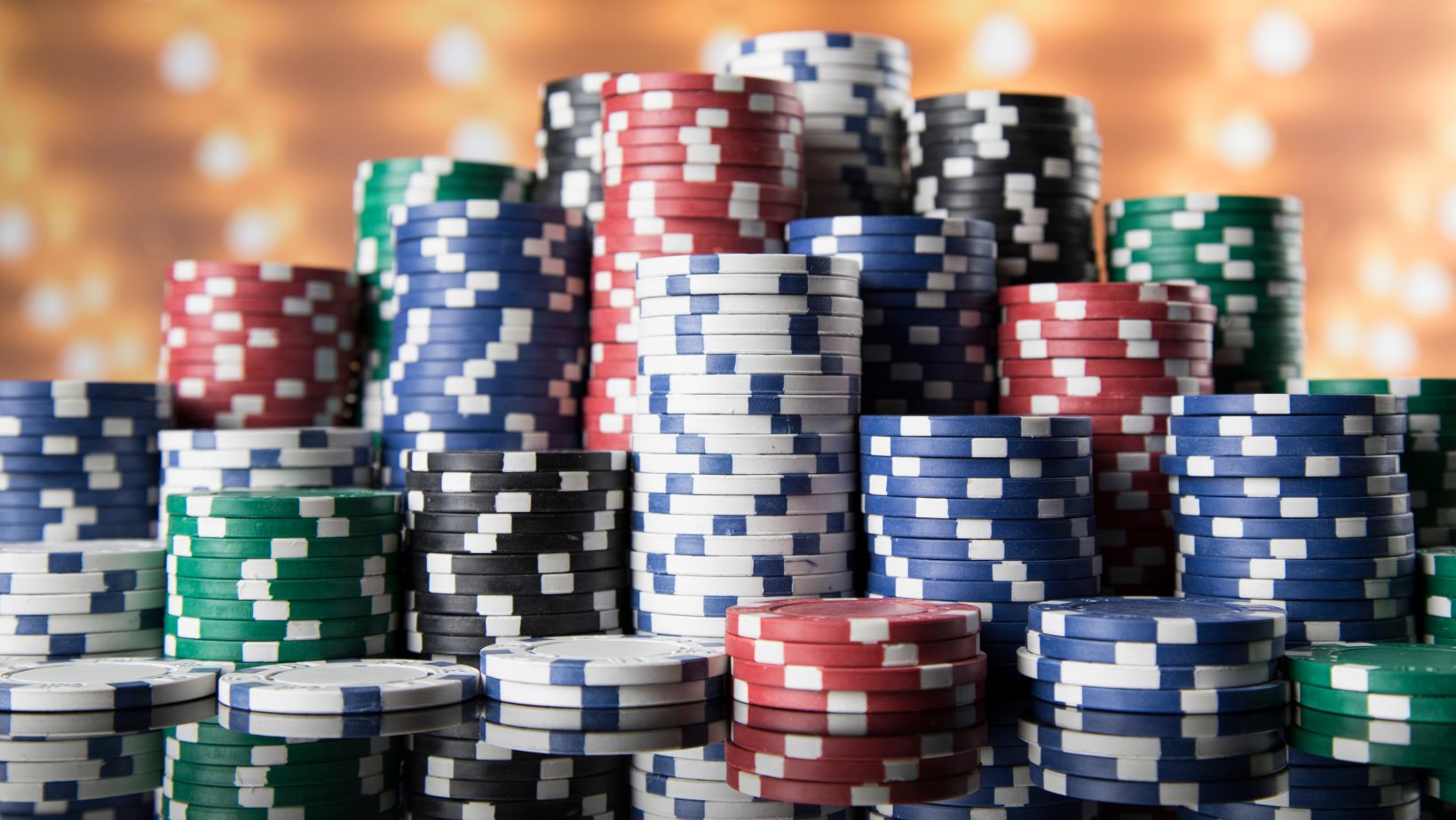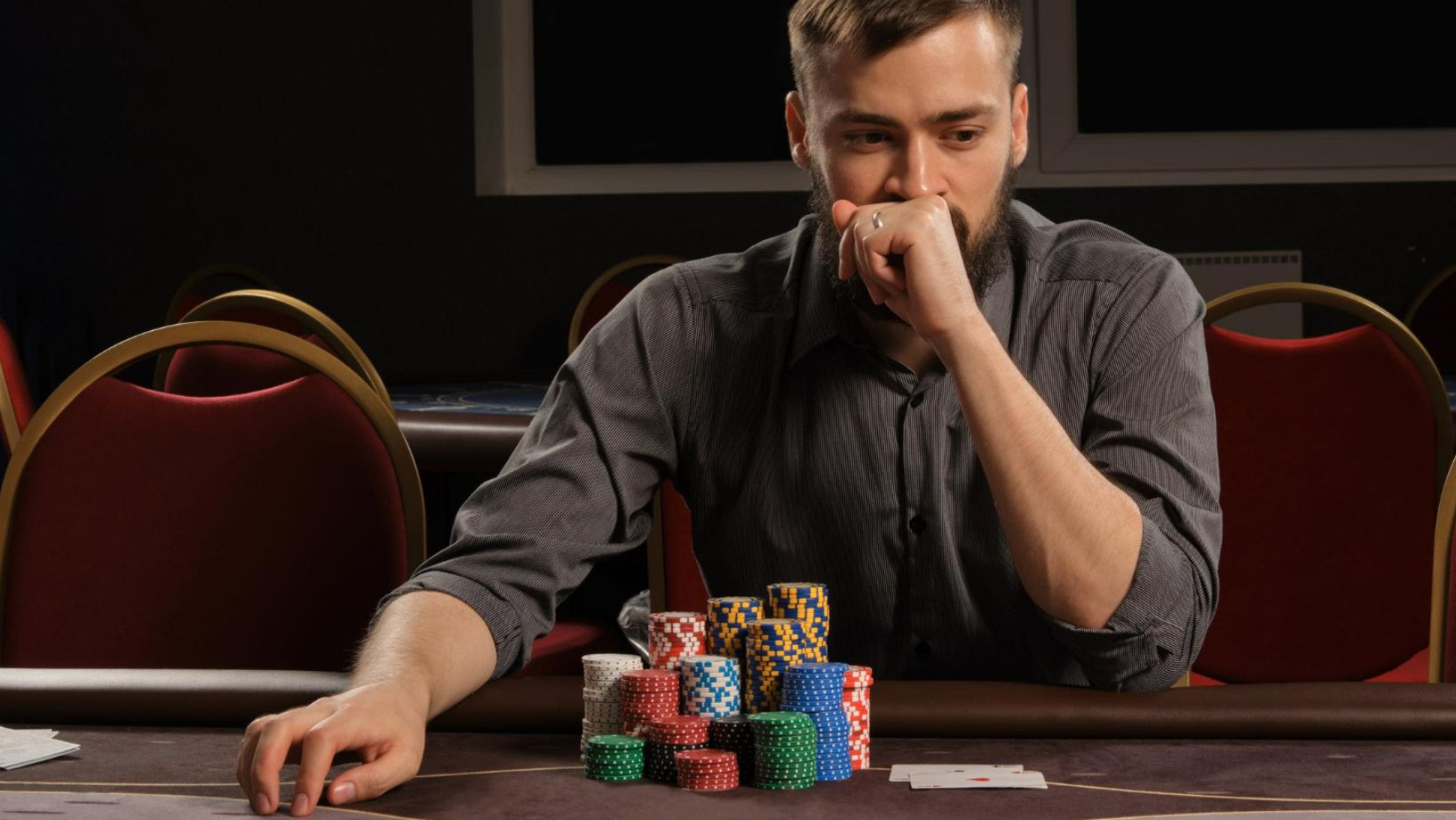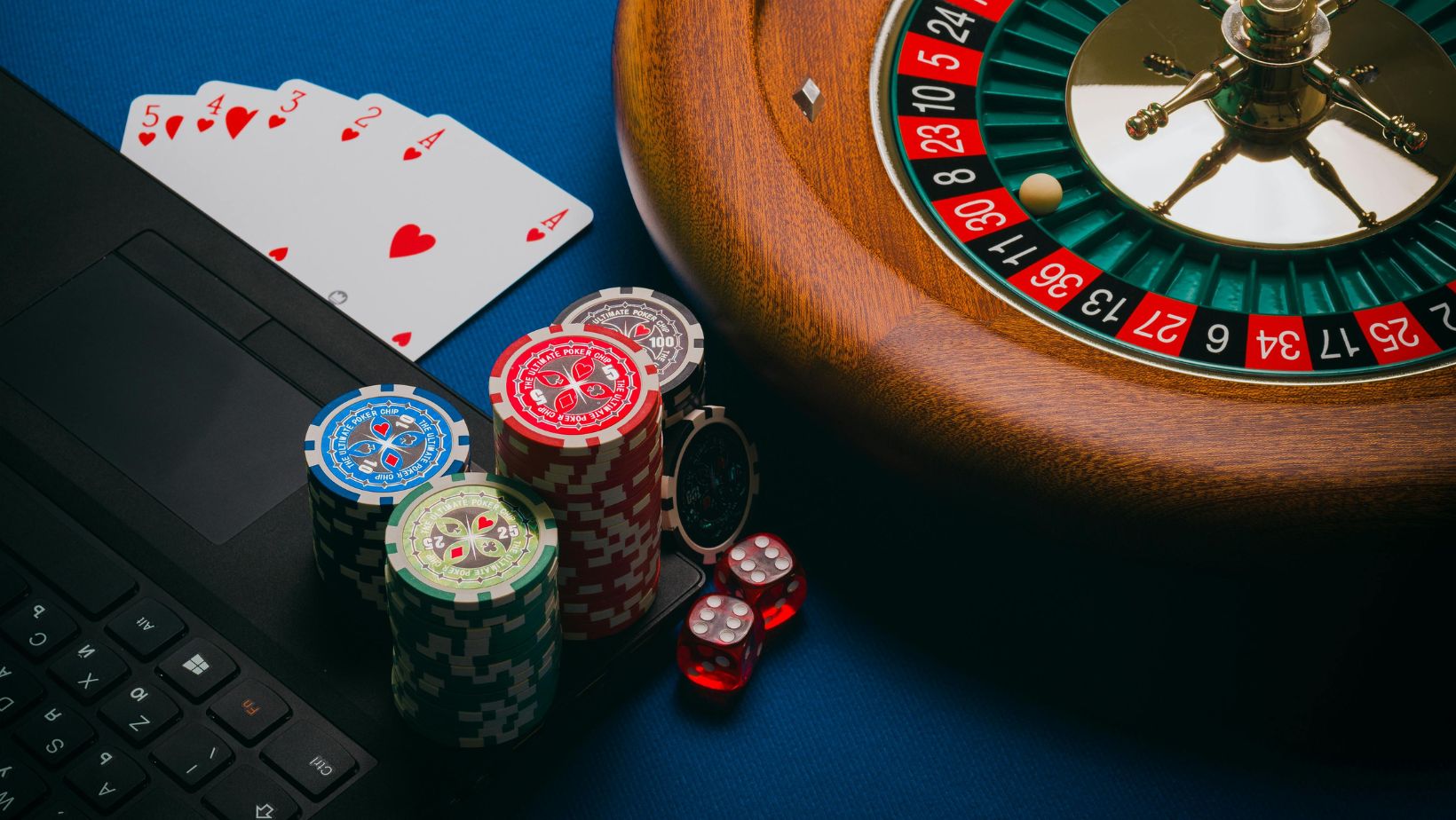A lot of poker is brainpower, strategy, and discipline. At the poker table, you control your decisions and thought process more than the cards.
The game teaches you to focus on the process of thinking rather than obsessing over bad moves. Whether you’re folding or bluffing, you’re sharpening real-world skills like decision-making under pressure and managing risk.
Here’s how you can build mental strength while playing this classic card game.
Table of Contents
ToggleCalculating Risk and Reward
Every chip is a gamble in a poker game. Novices often fear losing chips, but smart players balance risk vs. reward.
Seasoned poker players emphasize good bankroll rules. They don’t chase every little draw or bluff with marginal hands.
Risking your entire roll on one event is one of the biggest mistakes you’ll commit. You can also minimize extreme downside risk by being cautious at the table so you won’t bust out in one hand.
That said, be ready to act when the odds are in your favor. If the pot odds are good and you have decent cards, a calculated call or raise can pay off.
Calculated moves are rewarding at the poker table as well as in life. This way, you learn to think long-term.
Patience and Discipline
Poker often has long, boring stretches of folding, especially for a beginner. But one of the best lessons here is patience.
You shouldn’t worry about missing a few hands. If you have trash or uncertain cards, fold early. Wait until you have at least a playable starting hand before risking chips.
A tighter, disciplined style can survive a downswing. Over time, you’ll learn when to loosen up, like late in freeroll poker tournaments, and when to hold back, like early with weak cards.
One big win doesn’t make you a hero. Similarly, one loss doesn’t make you a bad player.
Keep the long view and don’t let one bad hand stress you over. The patience and consistency in this game will make you more disciplined.
Reading the Table
Poker is a game of people, not just cards. A big part of the mental challenge in this game is reading opponents and picking up on tells.
A tell is any behavior change that hints at hand strength. Watching opponents’ reactions helps with decision-making at the poker table.
For example, a player who likes their hand might quickly glance at their chips on a good flop. On the other hand, nervous chip shuffling or hesitation can signal weakness, while a steady gaze might signal confidence.
So, listen in during table talk, watch how players handle chips, and note how long they take to act to spot the clues. Eventually, you’ll pick up on simple patterns.
However, ensure to hide your own body language. Keep a straight face, don’t stare at a good flop, or tremble when bluffing to get an edge.
Remember, often the smart player wins, not the best hand, as they can force folds and bluff well.
Creates a Growth Mindset
Every player faces bad beats and losses. The secret to success is to learn, not lament.
Poker pros focus on what you can control. They believe you can’t control the outcome. So why waste time thinking about it?
If you played a hand well and got unlucky, chalk it up to variance. Rather, focus on what you can actually change.
Never fret over one bad hand or a short losing streak. Avoid the temptation to take one loss as a barrier to growth. Instead of brooding on a loss, ask yourself:
- What happened?
- Could you have bet differently?
- Did you miss a tell?
After each gaming session, quickly review one tough hand. If you find any mistakes, fix them next time. If not, simply move on. Use your energy to improve and win in the long run. This mindset shift teaches you positivity.
 Treating each hand as a lesson will help you grow from a scared beginner into a confident poker player.
Treating each hand as a lesson will help you grow from a scared beginner into a confident poker player.
Emotions and Tilt
Poker is as much a battle with yourself as with opponents. Tilt in the game means you’re losing your cool, which can cost you financial trouble.
It’s a state of mental unclarity, where someone’s judgment is impaired by anger or frustration.
When a player is on tilt, they may play wildly, chase bad hands, or go all-in rashly. This wrecks strategy and bankroll. But how do you stay calm in such a tense situation?
First, recognize tilt signs, such as sudden anger, impatience, irrational thoughts, or feeling off. If you feel tilted, take a step away for a minute, breathe deeply, grab a drink, or get some air.
If losing money really upsets you, reducing the stakes is another wise choice. Always focus on decisions instead of the bad beat.
This mental practice during the gameplay teaches that the outcome isn’t important. All that matters is how you made the decision.
Carrying a loss as emotional baggage blocks you from learning. Instead, stay calm and analyze each hand. Managing emotion is as big a skill as odds calculation.
FAQs
- What’s the best way to improve the mental game?
Try to stay focused on each decision and study good players. You can also use free poker gaming apps to practice poker gameplay.
- How do I control tilt?
If you’re unusually angry or irritated, take a quick break. Focus on your strategy, not past losses. Make sure you only play stakes you’re comfortable with. Over time, this stops the tilt from snowballing.
Final Thoughts
Undoubtedly, poker builds a stronger mind. Every hand tests your focus, patience, and emotional control. But over time, you’ll learn to stay calm, think clearly, and bounce back from setbacks.






